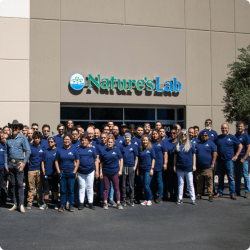

Everyone gets the same 24 hours each day, but what we do with that time is what can make all the difference in our quality of life. Do you ever wish you had more time to perhaps dust off your guitar and hone your playing skills? What about simply having more time with family? How can you get all of your responsibilities done so you can have more time to do what you love? Here’s a few helpful productivity tips so you can get the most out of your day.
Get Better Rest

Getting a good night's sleep is the foundation for productivity. It’s a revolutionary idea to suggest sleep can lead to a more productive life. One need only to turn to social media for numerous examples of individuals waking up well before the dawn of day to complete a vigorous morning routine. Even celebrities often flaunt how little sleep they need to be “productive.” One well known actor recently revealed he wakes up at 2:30 am, exercises at 3:45 am and gets in a second workout session at 4 p.m. While historic lore says Napoleon may have been able to get by on 4 hours of sleep a night, the average person won’t be able to conquer their personal empire without a minimum of 7-9 hours of quality rest per night. Staying up late to burn the midnight oil and getting only a few hours of sleep per night can significantly hamper your cognitive function for the next day and potentially in the long term. A report by the CDC explains that lack of sleep has a similar effect on the mind as consuming too much alcohol. If you’ve gone an entire 24 hours without sleep, your cognitive state would be as if you had a blood-alcohol level of 0.10%. Sleeping may feel like you’re doing nothing but the reality is your body is quite active during this time period. During sleep our intrinsic repair and cleanup processes remove any cellular waste that may accumulate within the brain.* One study described this as the “brain’s garbage disposal system.” It needs time to run, and it only occurs during sleep. The less you sleep, the less time there is to take out the cellular “trash.” Essentially, sleep is when the body repairs itself, especially taxed neurotransmitters that are crucial to how well our brain can handle cognitive tasks.*
Tackle Tough Tasks First

Dale Carnegie was once quoted as saying, “Do the hard jobs first, the easy jobs will take care of themselves.” With all the recent news reports about “Bare Minimum Mondays” this bit of advice may seem out of date, however it may be one of the reasons Dale Carnegie excelled in the realm of business. A study examining ER doctors that gravitated toward more challenging work earlier in the day, versus those that eased into the day with simpler patient cases, showed that the group that jumped in with the most unpleasant or onerous tasks were more productive in the long run. This can be a struggle for some to implement. The mind may achieve a short term mental boost by procrastinating when faced with a tough task but this is extremely short-lived. On the other hand if difficult tasks are taken care of first, it can result in not only more productive performance in the long run but less stress and an upbeat mood. It makes sense when you think about it. Addressing harder tasks first means you are fresh from a good night’s rest (hopefully). In addition, you are more likely to have the bandwidth to take on a complex task at the beginning of the day, than at the end, when you’re ready to relax and recharge. You can coax your mind into taking on an intimidating task by breaking the large task into smaller projects or scheduling something pleasant after completing the task such as a snack break or chatting with a friend.
Limit Distractions from Technology

Can we really multitask? The science says our brain does not really perform two tasks at once, but rather it just switches quickly between multiple tasks. Researchers wanting to find out how media multitasking affects productivity found that juggling several screens including multiple computer monitors, phones and tablets generally led to underperformance. Media multitasking such as working on a project, checking social media, responding to emails, streaming videos and watching TV all at the same time showed disruption in working memory and attention. These findings give important insight into how technology can help or hinder productivity. For many, using multiple devices is simply part of the job, as is answering emails. Try creative solutions to manage technological distractions like silencing notifications from certain apps that are likely to sap your productivity. Blocking out uninterrupted time to focus on a project and then answering emails can help limit the amount of times your brain must switch to a different task. There is one area of technology that can actually increase productivity and make work tasks more enjoyable– listening to music. Researchers studying music’s effect on productivity concluded that “when music evokes a pleasant mood and an increased arousal state, participants perform better on nonmusical tasks.” The takeaway: use only the devices you need to get your work done, minimize or silence social media notifications during non-break times and crank up your favorite tunes in your headphones while you work.
What Supplements Can Help with Productivity?

Nature’s Lab is your partner in wellness, so you can trust that we have a broad selection of products that can help you reach your productivity goals.
Green Tea Extract: Nature’s Lab Green Tea Extract has an energizing effect that can help you power through an afternoon slump.* We also include green tea extract in our Resveratrol Ultra, so you can combine the brain benefits of Resveratrol with the energy enhancement of green tea.*
Melatonin Fast Melts: If you struggle to wind down at the end of the day a melatonin supplement may help you relax.* Our Sleep Collection provides a variety of options for those who have issues with occasional sleeplessness.
L-Theanine: Our l-theanine supplement is versatile in that it promotes relaxation without drowsiness, as well as focus. Studies suggest l-theanine may support calming alpha brain waves.* Alpha brain waves are associated with a “flow” state of mind that may help you work more productively.
Ashwagandha Extract: If you have a hectic schedule and packed to-do list try Ashwagandha. Ashwagandha is an adaptogen herb that helps the body respond to external factors. It supports mood and may influence balanced cortisol levels. Ashwagandha also supports immune function and physical endurance.* You can view our complete collection of Ashwagandha supplements here.
All work and no play won’t help you be more productive, it’ll just lead to burn out. Our hope is that these tips will help you have more time for hobbies, family, and the moments that matter to you the most.
* These statements have not been evaluated by the Food and Drug Administration. This product is not intended to diagnose, treat, cure, or prevent any disease.
References







